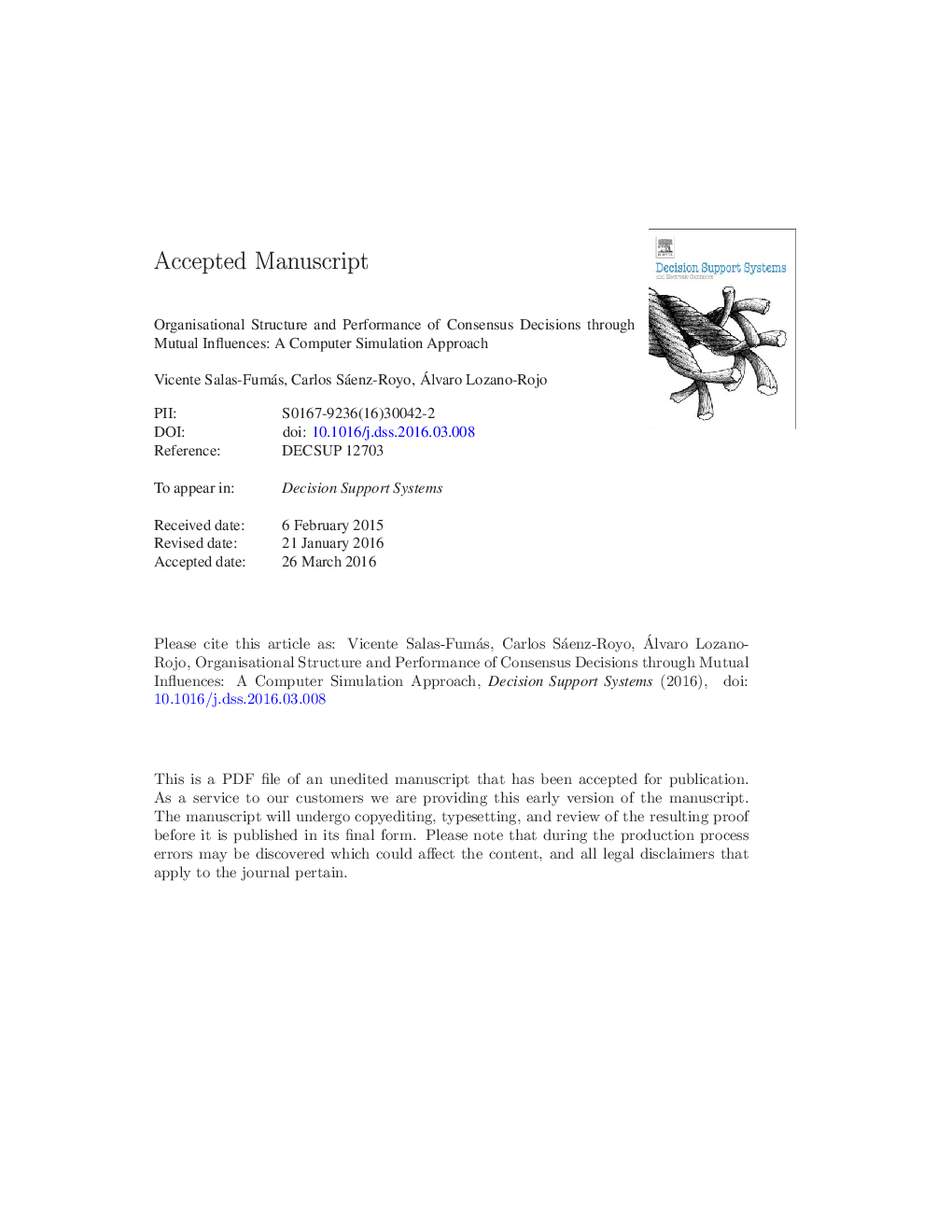| Article ID | Journal | Published Year | Pages | File Type |
|---|---|---|---|---|
| 6948450 | Decision Support Systems | 2016 | 39 Pages |
Abstract
This paper models and simulates the formation of consensus through information sharing and social influences among bounded rational individuals connected through a communication network, who collectively decide whether to adopt a new project, policy or idea (innovation in short) or not. Next we examine the sensitivity of group fallibility in the collective adoption decision and the time spent on reaching consensus to parameters of the model such as the economic value of the innovation, the connectivity and size of the network and the degree of social influences. We find that group consensus decisions reduce the probability of commission errors to negligible values (adopting value-destroying innovations), but the probability of omission errors (rejecting value-creating ones) and the time to reach consensus are sensitive to the exogenous parameters with some trade-offs: higher average connectivity of communication networks increases the likelihood of making omission errors in adoption but reduces the time to reach consensus. The results of this research are relevant to managerial decisions affecting the performance of consensus by mutual influences on decision making in the expanding production and exchange systems of information-intensive networks of empowered workers.
Keywords
Related Topics
Physical Sciences and Engineering
Computer Science
Information Systems
Authors
Vicente Salas-Fumás, Carlos Sáenz-Royo, Álvaro Lozano-Rojo,
